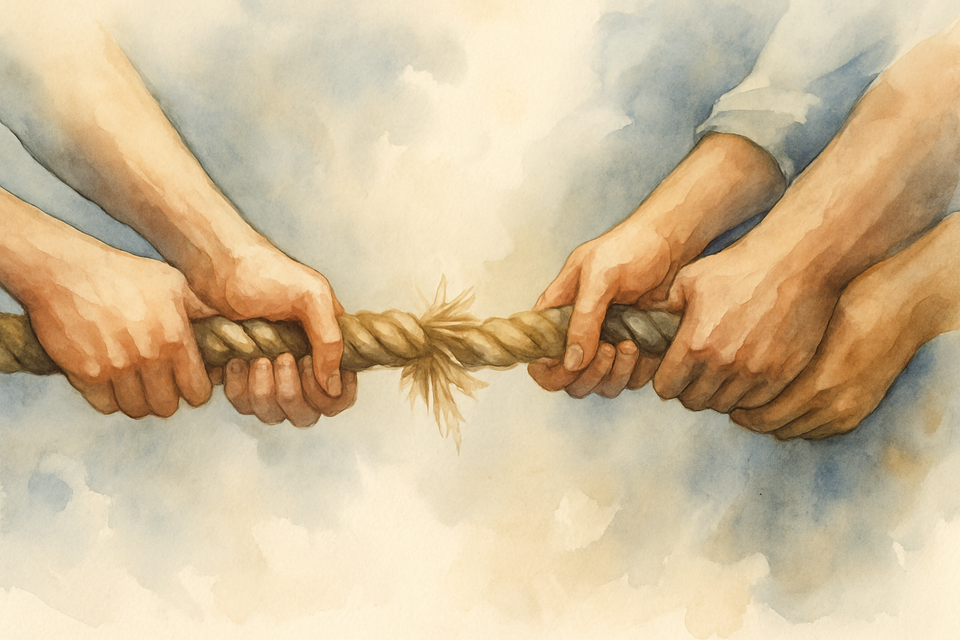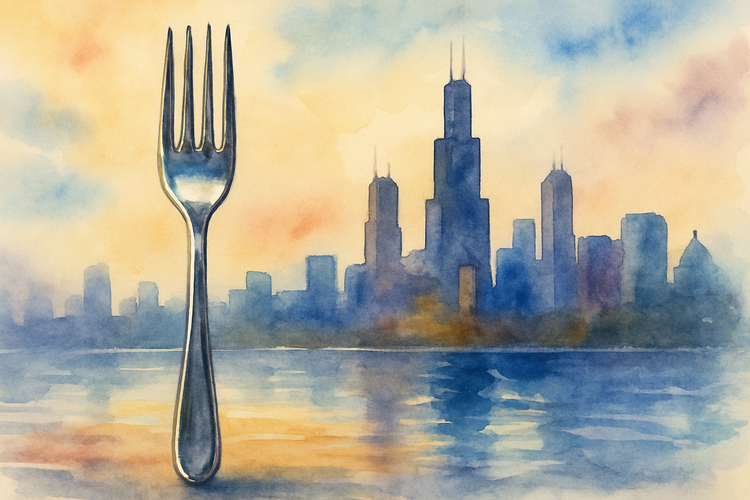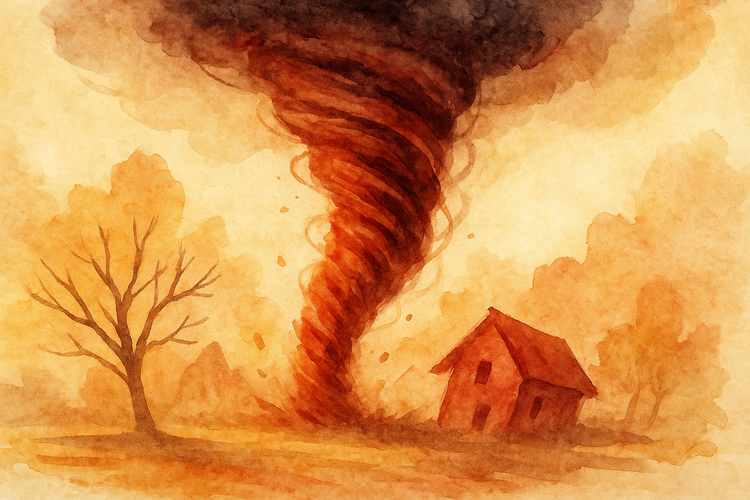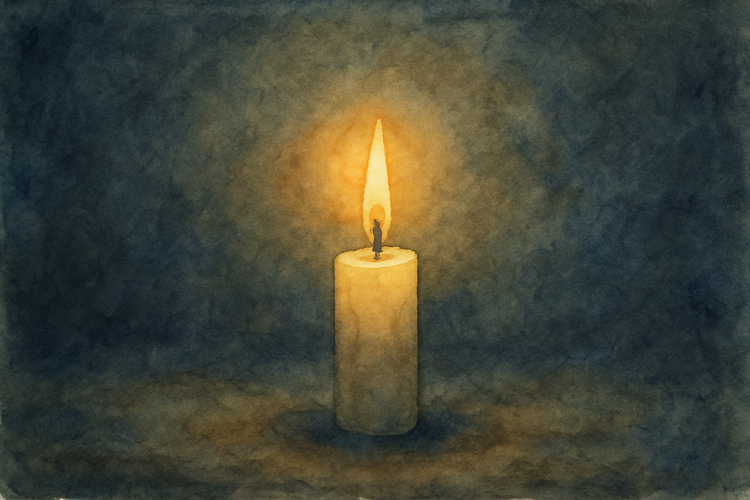The Bear S1E5 "Sheridan"

Spoilers ahead for Season 1 of The Bear.
“Sheridan” finds The Beef at its most fragile. Toilets explode, fuses burn out, freezers fail—everything that can break does. The restaurant itself feels like a character on life support, one crisis away from flatlining. Yet the deeper rhythm of the episode isn’t collapse but endurance. Each person, in their own flawed way, picks up their end of the burden. It doesn’t erase the chaos, but it keeps the place alive for another day. That act of carrying—through improvisation, teaching, patience, or sheer stubbornness—is what gives the episode its unlikely warmth.
Sydney’s Burden of Possibility
Sydney carries her end with a restless devotion. The episode opens with her already thinking about the Beef, as though the restaurant has followed her into her sleep. That obsession doesn’t feel unhealthy so much as urgent—she needs this to work, needs this kitchen to be the place where she finally plants herself. When the fuse blows and the freezers fail, it is Syd who refuses to panic. She cobbles together a way to cook the food before it spoils, keeping the day from tipping into disaster. Beneath that competence is a wound. She once tried to build something of her own—a catering business that unraveled under its own weight. She knows what it is to pour herself into a venture and watch it collapse anyway. That history is what makes her so fierce about carrying her end here. Every improvisation, every refusal to let the Beef go under, is her way of rewriting that story. To carry this burden is to prove, to herself most of all, that she can hold something steady without letting it slip away.
What’s striking is that Sydney’s burden doesn’t end with logistics. She is also carrying the weight of possibility itself. The Beef is chaotic, often small-minded, trapped in its own gravity. Syd keeps insisting on another way. She pushes Carmy to change the menu, to think differently about the evenings, to risk being more than a sandwich shop held together with duct tape. That vision can sound naïve or premature, but it is also essential. Without her, the Beef is only survival; with her, there is at least the hint of transformation. Carrying her end means not only patching the cracks but daring to believe the building could be remade. It’s a heavier burden than anyone else is lifting—part pragmatism, part hope—and it isolates her even as it fuels her. The kitchen doesn’t always know what to do with her determination, but without it, the Beef has no future.
Carmy’s Burden of Inheritance
If Sydney carries the burden of possibility, Carmy carries the burden of inheritance. His weight is heavier in some ways—grief for his brother, the crushing expectation of his own talent, the sense that he has to redeem both himself and the Beef at once. Where Syd improvises with fire and hope, Carmy steadies with instruction. His sauce lesson is a rare moment of generosity, a glimpse of him carrying his end not by brute force but by sharing what he knows. And when he tells his sister he’s going to Al-Anon, it isn’t framed as a grand revelation. It’s almost offhand, delivered gently, as if to calm her: a small assurance that he is trying, that he hasn’t given up. Even in the smallest exchanges, Carmy’s way of carrying is less about spectacle than about quiet endurance. He isn’t always graceful—asking Richie to dig up money in questionable ways shows the darker edges of his responsibility—but he refuses to put the load down. Together, his inheritance and Sydney’s possibility form the axis of the kitchen: grief and hope, survival and transformation, each keeping the Beef from collapse in their own way.
Marcus’s Burden of Care
Marcus carries his end more quietly than the others, but no less meaningfully. His weight is the burden of mistakes—ones already made and ones he is determined not to repeat. In this episode, he and Carmy share stories about failures in the kitchen, a rare moment of openness that shrinks the distance between them. For Marcus, carrying his end means approaching the work with humility, almost reverence. When he takes precautions to avoid making the same mistake twice, it isn’t just about saving product or avoiding embarrassment—it’s his way of showing respect to the craft, to the team, to himself.
What makes Marcus’s burden so compelling is how unlikely it seems. A former McDonald’s employee, he could have remained background noise in the Beef’s chaos, just another body keeping the line moving. But pastry awakens something in him—a discipline, a tenderness, an attention to detail that feels more like calling than job. His arc is slow, patient, almost against the grain of the show’s manic energy. Where others carry their ends through speed, improvisation, or brute responsibility, Marcus carries his through patience and care. He reminds us that endurance doesn’t always look like heroics. Sometimes it is as simple as treating dough with respect, as learning from your mistakes, as refusing to let yourself be reduced to where you started. His growth suggests that carrying your end can also be a way of finding your end—discovering the work that was waiting for you all along.
Richie’s Burden of Chaos
Richie is the hardest to watch when it comes to carrying his end. His load is tangled in bravado, insecurity, and the shortcuts he learned running alongside Michael. In Sheridan, he picks fights, admits to dealing coke in the alley, and flails against everyone around him. There is no clear contribution here, no stabilizing presence—only noise and damage. And yet he remains part of the Beef’s fabric, unavoidable and inescapable. Carmy calls on him when money is needed, not because Richie has earned trust, but because Richie is always there, always entangled. His way of carrying is crooked, even harmful, but he doesn’t let go of the rope. That stubborn attachment is what keeps him in the frame, even if it makes him the most fragile end of all.
The Burden of the Beef Itself
The Beef is more than a backdrop in Sheridan—it is a body breaking down. Toilets explode, fuses burn out, freezers die. The place seems determined to sabotage itself, as if daring its people to give up and walk away. In a sense, the Beef is the heaviest end of all, a burden no single person can carry. And yet that fragility is what pulls everyone closer to the rope. Syd improvises to save the food, Carmy leans on Sugar and Richie for solutions, Marcus works with new care. The restaurant’s failures force them into sharper forms of themselves. The Beef staggers forward not because it functions but because, in the face of collapse, each person insists on carrying their piece a little further. It is a ruin that survives only through shared labor, proof that endurance is not the absence of breaking but the refusal to let breaking be the end.
Carrying Together
“Sheridan” is a catalog of failure: plumbing that bursts, electricity that fails, food that spoils, tempers that flare. But beneath the wreckage, the episode offers a different vision of survival. The Beef endures because no one lets go of their rope. Sydney carries the burden of possibility, Carmy the burden of inheritance, Marcus the burden of care, Richie the burden of chaos. Even the building itself demands to be carried, forcing its people into moments of improvisation, endurance, or desperation. None of these ends are clean, and some drag harder than others, but the act of picking them up is what keeps the kitchen alive. The Beef is not redeemed in this episode—it remains fragile, broken, almost unworkable—but it is held together by a community of imperfect people refusing to set their weight down. That is the warmth of “Sheridan”: the recognition that survival itself can be an act of love.



Comments ()